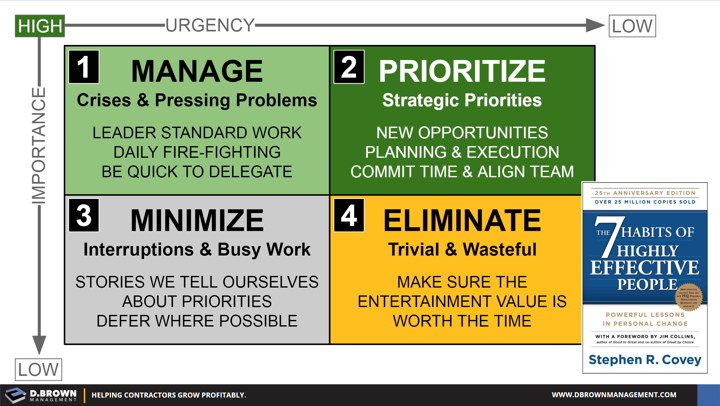If you are reading this post that means that you likely have control over the majority of the 24 hours in your day and the 7 days in your week.
In 1989 Stephen Covey published The 7 Habits of Highly Effective People (https://dbmgt.co/2GZODTb) and in there he talked about the Urgent versus the Important on the way to what he called your “Personal Victory.”
Being disciplined enough to focus on the truly important tasks every day is more critical today than ever. We have more distractions like app games, advertising and social media that mostly fall into Quadrant 4 (not urgent or important).
Scaled-up businesses with the additional complexity of technology have so many people working at such a layer of abstraction away from the actual customer that it is easy to mistake busy work (Quadrant 3) for real value-add work (Quadrant 1).
What’s truly important that you can do today, this week and this month that will move your life forward in a meaningful way (Quadrant 2)?
Have you prioritized that activity ahead of nearly everything else?
What could you stop doing?
What could you say no to?
What will turn "could" into "did"?

